Six things that bug me about iOS 6
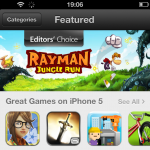
If you have a newish iOS device -- whether it’s iPhone, iPad or iPod touch -- there’s a good chance you have already upgraded to iOS 6 and are using it now. According to a study by Chitika some 15 percent of users with a compatible device upgraded in the first 24 hours, and that figure will likely have at least doubled by now, a couple of days later.
Apple says iOS 6 has 200 new features, and while some of them are very useful inclusions, such as Facebook integration throughout, and Shared Photo Streams, iOS 6 isn’t the dream operating system it could have been. In fact, it’s hard to imagine Steve Jobs would ever have allowed it to have been released if he were alive today. Here, in no particular order, are the areas where I feel Apple could have tried harder. Yes, based on my real-world experience, and regretful iOS 6 upgrade.
Hey, Apple, where’s the innovation?

So the iPhone 5 has been unveiled and, well, it’s just a bigger version of the iPhone 4S. No great surprise there, as all the rumors and leaks predicted that would be the case. There are some other changes to the device of course; it’s faster, lighter, prettier and has a better camera and a new dock connector, but really it’s just Apple’s phone with a bigger screen, improved OS, and less Google.
If the reports are to be believed, and they are, in October Apple will introduce another new product -- a smaller iPad.
Why we love Steve Jobs
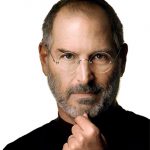
In about six weeks, the InterWebs will flood with posts commemorating a tech visionary's passing. Steve Jobs died on Oct. 5, 2011. A year ago last week, he stepped down as Apple's CEO. Jobs is a colorful, iconic, flawed figure, who stands before us something more than mere mortal. That's because his public life has a literary quality that cuts to the core of our humanity.
I got to thinking more about this today following a discussion with colleague Tim Conneally and questions answered for a CNN reporter about Microsoft (apologies to him, I removed those sentences and use them here). I asked Tim today: "Why is Steve Jobs so endearing? Redemption. What's that term in fiction about the hero's journey? Steve Jobs followed the path in real life". There's something Shakespearean, too -- the fatal flaw that humbles greatness. Mixed together, his story should be a great fictional work. But it's better and haunting being real life.
A 7-inch tablet from Apple would just create more lawsuits

Apple is one of the most important companies in the world of consumer technology and one that has changed the destiny of the smartphone and the tablet. It came as a big surprise when the Cupertino, California-based company announced the iPad more than two years ago. In 2010, Apple made waves with its first tablet generating $9.566 billion in revenue from the iPad alone, and in 2012 it's making headlines again with a smaller, seven inch tablet it hasn’t even announced yet.
In 2010 Apple had the market all to itself, with the iPad dominating 83 percent of the tablet market. Why? The iPad wasn't designed to have the most cutting edge software or hardware in terms of features or speed, but it was conceived to offer easy-to-use software with hardware to match it, wrapped in a good looking package. It sold 14.789 million units in 2010 alone, so it's clear the idea caught on. The original iPad was released in a time when tablets weren't as popular as they are today, and despite previous efforts by Microsoft with the TabletPC, they never caught up. So what's changed?
You can't do real work on a tablet

Whenever I think about tablets v. PCs, I remember a bold prediction of old: “Son, 10 years from now everyone will drive an electric car!” When was that, 20 years ago? We’ve all read something like that from someone believing to be clairvoyant.
I read similar articles almost every day where the writer plays the same old broken record: tablets are the death of PCs, or some other flamboyant thing that’s bound to get interest -- with the hope that the reader will agree with the author. It's like almost everyone is set on sending the PC down to the gates of Hell. But why should I agree with their assertions when I actually need a PC?
Three things you REALLY need to know about iPad mini

The Apple iPad is the best-selling tablet by quite some margin, but with increasing competition from the likes of Google and Microsoft, its dominance could be under threat. Although the company could (and likely will) make some minor improvements to the iPad at some point -- making it thinner, boosting the camera, and finding a way to reduce its core temperature, for example -- it needs to come up with new variations if it wants to stay on top.
That means going large and producing a ‘MacPad’, which would essentially be a touchscreen, keyboard-less version of the Macbook Air (bringing it into direct competition with Microsoft Surface), or going small, and finally introducing the much rumored iPad mini.
Did you buy iPhone 4S, and was it 'for Steve'?

Today, Apple's newest smartphone goes on sale in seven countries -- Australia, Canada, France, Germany, Japan, United Kingdom and United States. We'd like to know: Did you buy one? If so, did you preorder or stand in line? Perhaps you're in line somewhere right now reading this. Do tell us. Maybe you're home, taking a day off from work, waiting for FedEx to deliver you preorder -- and wondering why not a day early like iPhone 4.
I didn't buy the new smartphone. As I wrote last week, "You can have iPhone 4S, I'll take Galaxy S II". (By the way, the S2 is simply the best smartphone I've ever owned. I haven't enjoyed a gadget this much in years.) Meanwhile, my colleague Ed Oswald preordered iPhone 4S. He received it minutes ago as I write. Look for his unboxing photos and first-impressions review later today.
Did Google and Samsung do what Apple wouldn't?

Yesterday, after having raised anticipation with event invite, video and other teasers, Google and Samsung delayed the presumed launch of Android 4.0 (aka Ice Cream Sandwich) and Nexus Prime (or whatever the smartphone is called). The announcement is hugely important to both companies -- really more than iPhone 4S is to Apple -- because Ice Cream Sandwich closes the fork between Android 2.x for phones and 3.x for tablets. Reason for cancelling the October 11 event: "We believe this is not the right time to announce a new product as the world expresses tribute to Steve Jobs's passing". So what? Google and Samsung show respect for Jobs, but Apple doesn't?
Apple announced iPhone 4S on October 4. A day later, the company revealed that Jobs, Apple's chairman and until late-August its CEO, had died. The world is mourning the loss of one of the rarest of humans -- a true visionary who compelled loyalty among the people closest to him and those who used Apple's products, in part by aspiring for something better. How does Apple remember Jobs? By keeping business as usual.
Delaying Nexus Prime-Android 4 launch -- because of "Steve Jobs' passing" -- lacks business logic

Friday, Samsung and Google postponed what could be one of the most significant Android device launches in awhile -- likely the Nexus Prime -- scheduled for next Tuesday, October 11. The original statement was somewhat vague, but disclosed that both parties agreed that "it was not the appropriate time" to release the device.
"Samsung and Google have decided to postpone the Samsung Mobile Unpacked event during the CTIA in San Diego, previously scheduled for Oct. 11. Under the current circumstances, both parties have agreed that this is not the appropriate time for the announcement of a new product. We would ask for the understanding of our clients and media for any inconvenience caused. We will announce a new date and venue in due course."
Shrines for Steve Jobs [slideshow]

For many people, Apple cofounder Steve Jobs is a fallen hero. People are remembering his life in shrines outside Apple retail stores around the world.
His funeral, reportedly scheduled for Oct. 7, 2011, accentuates rather than ends the mourning for memory. I haven't seen such emotion expressed for man since former Beatle John Lennon was murdered in December 1980.
What the passing of Steve Jobs says about us
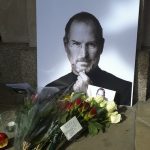
"Suit the action to the word, the word to the action, with this special observance, that you o'erstep not the modesty of nature: for any thing so o'erdone is from the purpose of playing, whose end, both at the first and now, was and is, to hold as 'twere the mirror up to nature: to show virtue her feature, scorn her own image, and the very age and body of the time his form and pressure". -- Hamlet Act 3, scene 2, 17–24
One thing that struck me about the passing of Steve Jobs is the level of emotion so many people feel. The outpouring of support and genuine sense of loss for a person that most people never met reminds me a bit of when Princess Diana died tragically. The emotion expressed over Diana’s passing was easy for me to understand. Diana was a state sanctioned celebrity, a real life embodiment of the fairy tales those in Western society grow up on. That coupled with her beauty and grace and life touched by scandal made it understandable why people would feel some kind of personal connection to her. The heroine from their fairy tales had been tragically taken away.
The ARM that supported Apple while Steve Jobs was away

Irony, it has many faces and comes as your best friend or worst enemy. Often, the only difference is timing. Take for, example, Apple and the Newton. The Newton was Apple’s first handheld device, and it was a colossal failure in the early 1990s. Much of Apple’s success now is because of the iPod and iPhone revolution. Timing, it’s all about timing.
Most kids these days don't know the full history of Apple, they just know Apple is cool and makes amazing mobile devices. They, may not know how political infighting within the company drove the genius behind Apple (Steve Jobs) out in 1985 or the back story they almost didn’t make it to be the world's most-valuable technology company today.
Steve Jobs narrates never-aired 'Think Different' commercial

Apple is known for its remarkable marketing. "Think Different" is one of its most memorable campaigns -- that it's not "think differently" makes the point. Good marketing is about aspiration, of making people believe that their lives will be better if they're associated with Product or Brand X, Y or Z. They also want to feel good about others -- even by association with a product or brand that does good or claims to do so. It's one reason green marketing is so successful -- doing good by association.
"Think Different" espoused the very best of human nature, of people who had another viewpoint that enabled them to be truly great, not just for themselves but for humanity. The campaign defined the Apple brand for years. Embedded here is the original "Think Different" commercial -- not the one that aired on television narrated by Richard Dreyfus but by Apple cofounder Steve Jobs himself. I prefer Jobs' version. Listen to the passion in his voice. The visionaries depicted mean something more than their use in a marketing campaign.
What people are saying about Steve Jobs
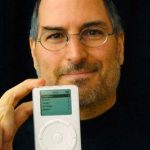
I first met then Apple CEO Steve Jobs in May 2001, during the opening of the first Apple Store at Tysons Corner Center in McLean, Va. Jobs hosted a media gathering a few days before thousands of Mac enthusiasts gathered to be the first customers. Jobs was dynamic and captivating. He made this unbelievable pitch for Apple's Mac market share reaching 5 percent and beyond, a seemingly unattainable goal at the time, with Windows so dominant. A decade later, Apple has accomplished that and so much more.
I'm genuinely sorry to see Steve Jobs' light extinguished from this earth. I offer my condolences to his family, friends and anyone else who loved him. But those words aren't enough, so I've collected others' sentiments -- from blogs, Facebook, Google+ and Twitter. The many can express what needs to be said better than can the one, meaning me.
Steve Jobs: A remarkable life
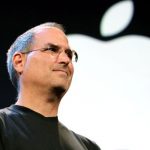
"For the past 33 years, I've looked at myself in the mirror every morning and said if today were the last day of my life, would I want to do what I am about to do today? And whenever the answer was no for too many days in a row, I know I need to change something."
--Steve Jobs, 2005
Steven Paul Jobs, co-founder and former CEO of Apple Computer died on October 5, 2011 from complications related to cancer, He was 56 years old.
Recent Headlines
Most Commented Stories
BetaNews, your source for breaking tech news, reviews, and in-depth reporting since 1998.
© 1998-2025 BetaNews, Inc. All Rights Reserved. About Us - Privacy Policy - Cookie Policy - Sitemap.